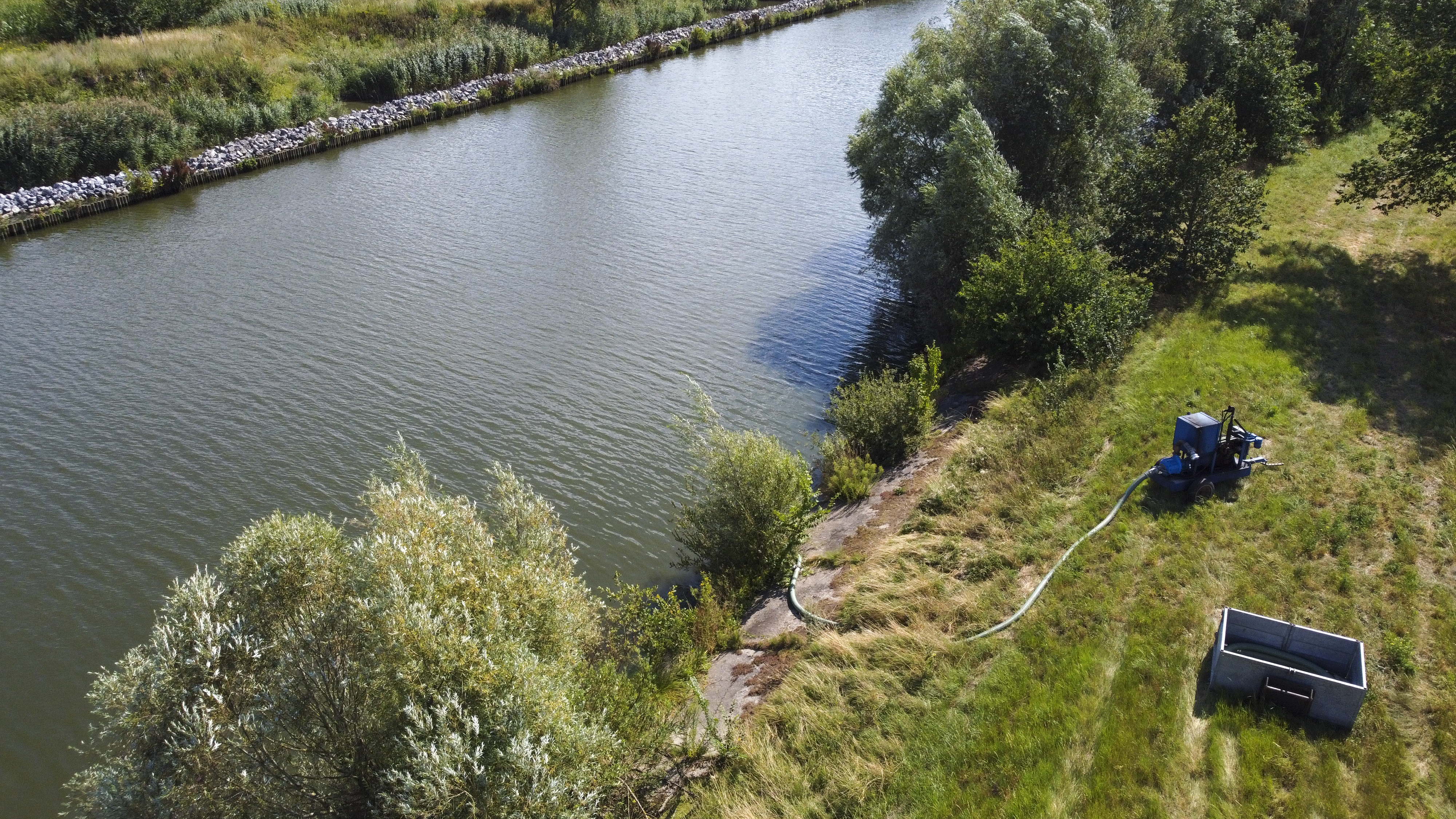Blue Deal: Flemish government and EU investment makes region more resilient to drought and floods

In the last three years, Flanders has invested 418 million euros in the Blue Deal, a plan that aims to make the region more resilient to droughts and floods. "There is still a long way to go, but the Blue Deal is putting many things in motion," says Flemish Environment minister Zuhal Demir (N-VA).
Of all OECD countries, Flanders has the fourth worst score for water availability. This is due to the high population density and relatively limited surface and groundwater. Climate change is upsetting this fragile balance. That's why the Flemish government launched the Blue Deal in 2020, to prepare the region for extreme weather situations. It includes more than 70 actions and 400 projects, with the goals of less hardening, more humidity and maximum circular water use.
Lost wetlands
Over the past few decades, Flanders has lost 75 per cent or 176,000 hectares of ponds, lakes, marshes, wet grasslands and peatlands: areas that can store large amounts of water and carbon. That's why about half of the 418 million euros - made up of 75 million euros from the government and 343 million from the EU Recovery Plan - has been invested in wetlands.
Altogether, Blue Deal investments have resulted in 6,000 hectares of wetlands, 88 km of redesigned watercourses, 9.4 billion litres of reduced leakage, 23.8 billion litres of additional reuse of treated wastewater, 113 hectares of infiltration, 560 weirs in agricultural areas, and 4 to 8 billion litres of additional reused rainwater.
Drought task force
The launch of the Blue Deal also saw the creation of the High-Level Task Force on Drought to facilitate its implementation. The task force, chaired by Demir, includes ministers, provincial governors, the Association of Flemish Cities and Municipalities, the Association of Flemish Provinces, scientists from Flemish universities and numerous government agencies.
The members of the task force are supported by the drought coordinator of the Flemish Environmental Agency, Aquaflanders (representing the Flemish water and wastewater companies), Flemish Waterways and water treatment company Aquafin.
To guarantee the continuation of the Blue Deal, the Flemish government approved a draft decree at the end of May, which obliges any future government to draw up a Blue Deal with transparent investments within the first year of its mandate. In this way, the programme will become a kind of "legislative plan", Demir says. "This will prevent the Blue Deal from bleeding to death after one term."
#FlandersNewsService | © BELGA PHOTO NICOLAS MAETERLINCK
Related news



